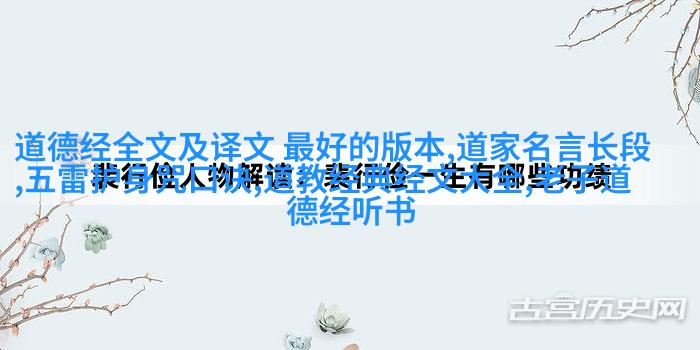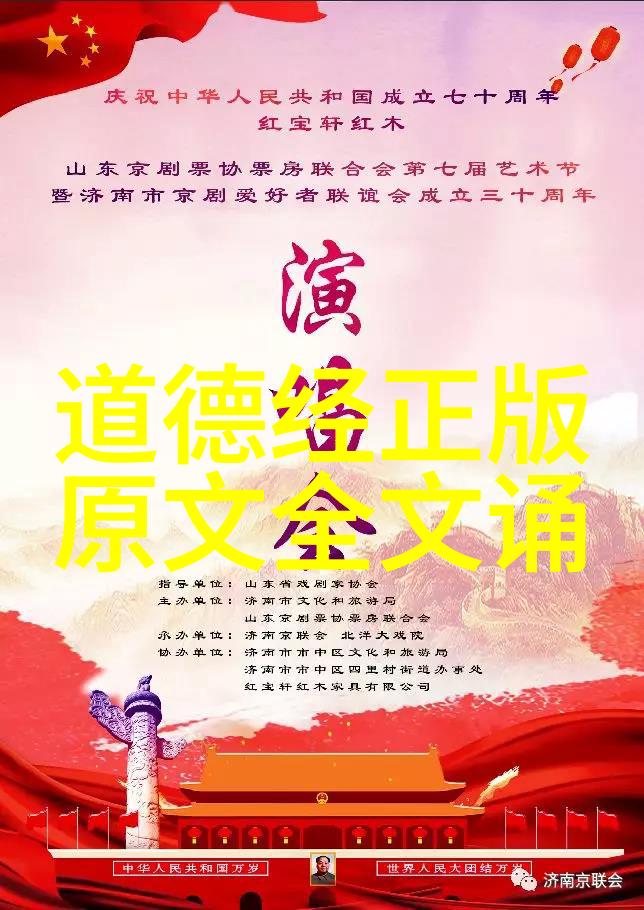战国时期道家学派思想的演变与对古代哲学影响之研究

引言
战国时期,中国社会进入了一个动荡不安的时代,各诸侯国争霸称雄,文化艺术和思想界也迎来了前所未有的繁荣。道家学派作为当时最具影响力的哲学流派之一,其思想在这一时期得到了进一步发展,并对后世产生了深远的影响。本文将探讨战国时期道家学派的主要思想、其在该时代的地位以及它如何通过与其他哲学流派的交流和融合,对古代哲学产生了重要的推动作用。

战国时期道家学派概述
《老子》、《庄子》等经典著作是我们今天了解战国时期道家的主要资料。这些作品反映了一种追求自然、顺应天地变化、超脱世俗纷扰的心态。老子的“无为而治”、“知足常乐”的理念,以及庄子的“逍遥游”、“万物并育”的观点,都体现了这种心态。

战争与内政:道家思维在政治上的应用
在残酷的战争环境中,许多诸侯君主开始意识到传统的一夫多妻制、征服他人以扩大领土等方式不再可行,而是需要寻找一种更为平衡和谐的人生观来治理国家。这时候, 道家的“无为而治”成为了一种新的政治理论,它倡导的是一种放手,让事物自然发展,不强加人意,这种方法虽然难以一蹴而就,但却能够减少内忧外患,为国家带来长久安宁。

此外,在内政方面,由于军费巨大且持续不断,一些君主开始关注农业生产,以确保民众生活稳定,从而减轻经济压力。在这个过程中,他们借鉴了道家的“养生延年”,重视节俭和谨慎管理财富,这样的政策有助于缓解人民负担,同时保持国家力量,使得战争更加持久化。
文化交流与融合:战国七雄中的智者们

除了政治领域,战国七雄之间还存在着频繁的文化交流。这期间出现了一批名士,如韩非子(法家)、孟轲(儒家)、杨朱(杨朱主义)等,他们都是非常有才华的人,也都对当时社会有一定的影响力。他们之间相互辩论,有时候甚至进行公开辩论,这些辩论往往围绕着如何治理国家的问题展开。在这样的背景下,与其他流派共同进步的是那股追求知识、实践智慧、寻找最佳解决方案的心态,即使是在不同的立场上,他们也都试图找到适合自己所处时代的问题解决方案。
结语
总结来说,在warfare and diplomacy of the Warring States period, Daoist thought had a profound impact on both political theory and practice. Its emphasis on non-action, naturalness, and simplicity resonated with the needs of rulers seeking to consolidate power and maintain stability in a turbulent world. The interplay between Daoism and other philosophical schools helped to shape new ideas about governance, ethics, and human nature that would influence Chinese thought for centuries to come.
In this paper we have examined the development of Daoist thought during the Warring States period as well as its implications for ancient philosophy. We have shown how Daoist principles were adapted by rulers seeking to navigate the complexities of war and diplomacy while maintaining social order. We have also highlighted the ways in which Daoism interacted with other philosophical schools during this time period.
By examining these interactions we can gain a deeper understanding of how different philosophical traditions influenced one another during this pivotal moment in Chinese history. Moreover, we can see how these influences continue to shape our understanding of politics, ethics, and human nature today.
Ultimately then it is clear that even though there was much violence conflict during Warlord era China's intellectual landscape was not immune from change or progress but rather thrived under such conditions - providing us with invaluable insights into what it means be human being living together in society



